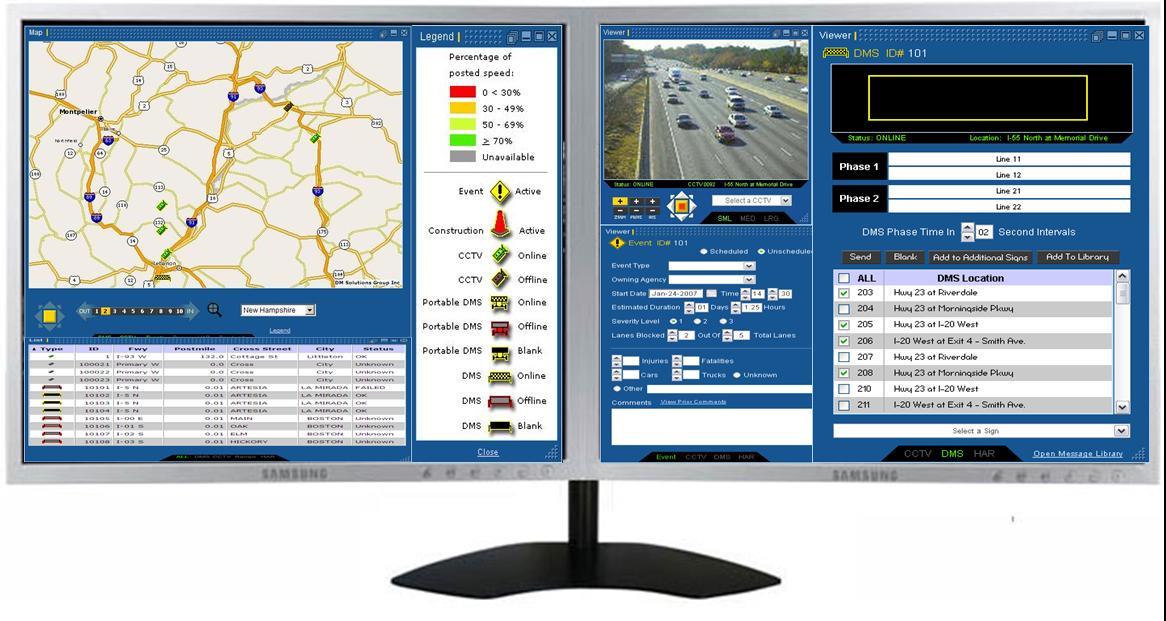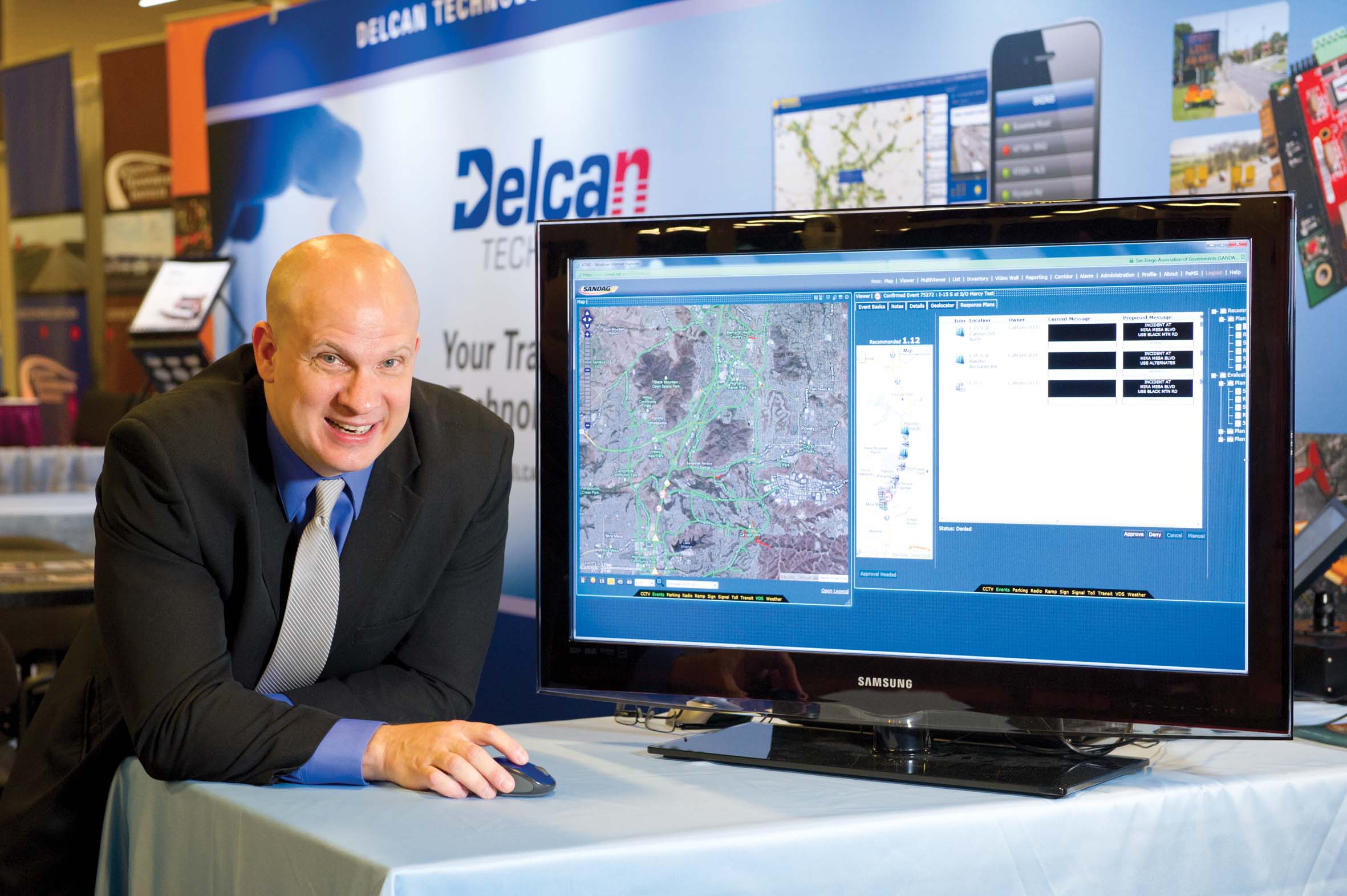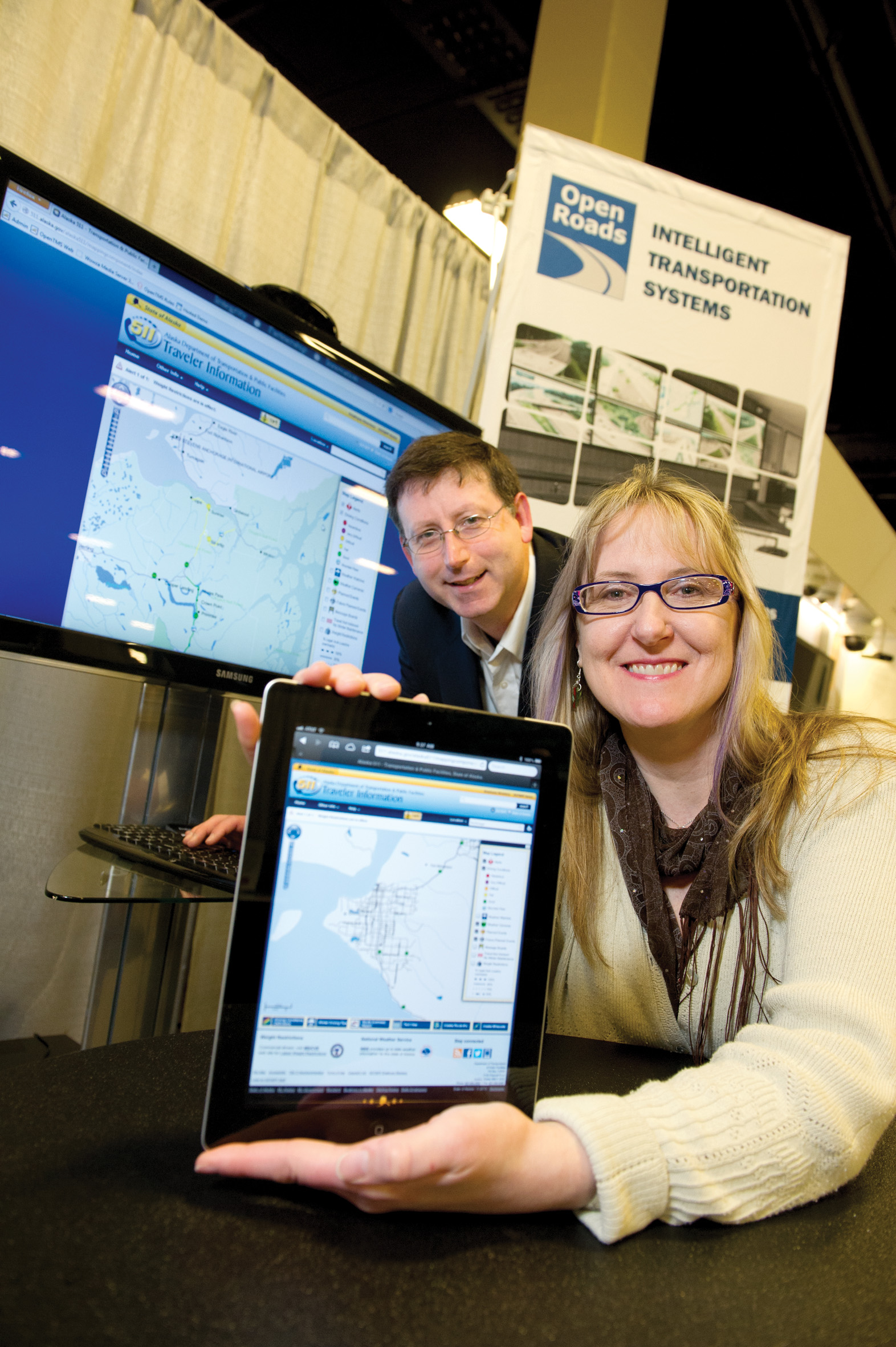Why has Active Traffic Management (ATM) grown in popularity as a mainstream strategy for agencies to maximise the effectiveness and efficiency of roadways, while increasing throughput and safety?

Dan Lukasik of Delcan with the ATM web-based solution
Why has Active Traffic Management (ATM) grown in popularity as a mainstream strategy for agencies to maximise the effectiveness and efficiency of roadways, while increasing throughput and safety?
If you drop by the285 Delcan booth you’ll learn why this growth in deployments can largely be attributed to advances in technology that allow for greater automation of dynamic and predictive features and about implementations which have proven immensely effective, both in the US and internationally.
As Dan Lukasik, Delcan’s Division Vice President of Product Development explains, ATM is a highly viable congestion and incident management approach: “ATM consists of a combination of operational strategies that, when implemented in concert, fully optimise the existing infrastructure and provide measurable benefits to the transportation network and the motoring public.
“These are diverse in nature but can include strategies such as, adaptive ramp metering, speed harmonisation, variable speed limits, dynamic lane management, dynamic merge control, queue end warning, hard shoulder running, junction control, traffic signal operations and dynamic routing.”
Many of the barriers that once prevented this sort of active, integrated and holistic approach to traffic management have been mitigated. The widespread application of ITS has provided the tools to monitor and manage individual facilities in real time and the deployment of wide-area networks facilitates data sharing and integration of systems between different organisations, resulting in increased cooperation.
For instance, Delcan’s Intelligent NETworks ATMS is a web-based solution and combines many ATM capabilities. This system was built upon the company’s extensive experience working in the ITS industry and will be the focus of Delcan’s presence here at the ITS America Annual Meeting.
If you drop by the
As Dan Lukasik, Delcan’s Division Vice President of Product Development explains, ATM is a highly viable congestion and incident management approach: “ATM consists of a combination of operational strategies that, when implemented in concert, fully optimise the existing infrastructure and provide measurable benefits to the transportation network and the motoring public.
“These are diverse in nature but can include strategies such as, adaptive ramp metering, speed harmonisation, variable speed limits, dynamic lane management, dynamic merge control, queue end warning, hard shoulder running, junction control, traffic signal operations and dynamic routing.”
Many of the barriers that once prevented this sort of active, integrated and holistic approach to traffic management have been mitigated. The widespread application of ITS has provided the tools to monitor and manage individual facilities in real time and the deployment of wide-area networks facilitates data sharing and integration of systems between different organisations, resulting in increased cooperation.
For instance, Delcan’s Intelligent NETworks ATMS is a web-based solution and combines many ATM capabilities. This system was built upon the company’s extensive experience working in the ITS industry and will be the focus of Delcan’s presence here at the ITS America Annual Meeting.
%$Linker:











